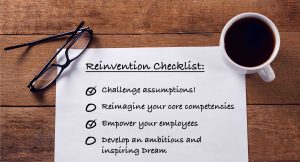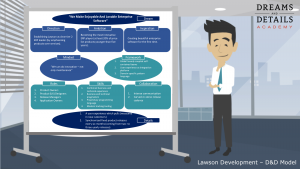Do What is Meaningful for You
When millennials and Gen Z’ers are asked about what they want from a job and in life more broadly, one of the most frequent answers is: “I want to have an impact.” And why wouldn’t it be? Having an impact or making a difference in something meaningful for us is immensely fulfilling for humans.
And this is not only the case for the younger generations. Across society, the mindset regarding what we demand from work and life is increasingly shifting. Gone are the days where people were happy with just working for a paycheck. Instead, we crave a life that gives us meaning, and we should ask for nothing less. We should be able to follow a path that we find meaningful: We should be able to have and follow a dream.
Originally, the Dreams and Details approach was designed to help organizations and their leaders – with risk and change management, business strategy, and unleashing human potential. However, the model is likewise significant on a personal level, as it can assist people in finding a meaningful direction. It is equally helpful for younger people to find a dream to follow, as it is for men and women with more work experience for reinventing themselves. The question then is: How do you find and reach your dream?
Imagine the Future
We are living in times where the world is radically changing and does so at an increasing speed. Due to innovation, our lives and possibilities will be drastically different in just a decade. As an example, just imagine how the computer, internet, and smartphone have fundamentally changed our everyday life, communication, entertainment, knowledge exchange, work, and so much more.
So, to find your dream, start by imagining what the future will look like. What will the world be like? What will you be interested in? How might digitalization have changed our world? What will be the key challenges to solve or opportunities to grab?
Of course, you won’t be able to predict what exactly the future will look like. However, you will be able to see some tendencies and trends, especially within your fields of interest.

Identify Your Core Competencies
To make sure you take a future direction that is relevant for you and fits you, you should figure out your core competencies. Your core competencies are those skills and capabilities in which you excel, and those that set you apart from others.
Your core competencies often build the foundation of the things you’re good at. They’re skills that stretch across the activities in your life (e.g., school, work, sports, other hobbies) and are the common denominator to why you are good at something. Examples include creative-, critical- or abstract thinking, communication, adaptability, analytical capabilities, emotional intelligence, problem-solving, leadership, and many more. Think about what you’re good at and figure out why you’re good at it; What are the fundamental skills that make you succeed?
When you have determined your core competencies, consider if and how they might be relevant in the future. Digitalization, mechanization, and technologization are fundamentally changing industries and work life as we know it. IT competencies will, therefore, be in huge demand. However, also particularly human capabilities, such as creative- and critical thinking, as well as emotional intelligence, will be increasingly asked for by employers since they’re not substitutable by technology. How do your core competencies fit into the reality in front of you?
Find Your Dream
Once you’ve identified your core competencies and imagined their relevancy in the future, it’s time to dream. By dreaming, we don’t mean unrealistic wishful thinking. Instead, we propose setting out an ambitious direction for yourself that is based on utilizing your core competencies to achieve something you find inspiring and meaningful.
Therefore, start with the question: What is meaningful to you? What is a field, area, occupation, or activity that you find joy in, you’re passionate about, that deeply interests or inspires you? Once you have figured out a field that you see yourself in in the future, ask yourself how you can contribute to this field with your core competencies. Which role do you see yourself having?
When developing your dream, dare to be ambitious – but be realistic. While pursuing a dream that is utopic to reach will demotivate you over time, you also should not set yourself a dream that is so easy to accomplish that you are sure to overachieve. Only an ambitious dream will inspire you enough to continuously work on reaching it and thus continue developing personally and professsionally.

Put in the Work
Reaching your dream does not go without having to put in the work. In the fast-changing world we live in, it becomes vital (possibly more than ever before) to continue learning, developing, and refining your skills. Only by persistent work polishing of your capabilities will you reach your dream.
In addition to refining and perfecting your core competencies, you need to think about complementary skills you’ll need to adopt or master to succeed. Overall, ask yourself: Which areas will you have to work on?
Furthermore, an area to put effort into is collaboration. Collaborating with other people can bring you closer to your reaching dream than trying to master everything on your own. Benefit from others’ experiences and knowledge, and don’t hold back to share yours. Additionally, most of the time, different competencies are needed to accomplish a specific ambition; so, team up with others to collectively succeed.
If all this talk about continuously having to invest effort to reach your dream has discouraged you now, let us tell you why it’s worth it. The sense of personal and professional development, achievement, and acknowledgment that you will gain from accomplishing a meaningful dream is incomparably fulfilling. It will grant a feeling of competence, autonomy, and belonging, which are the three essential psychological factors, which we strive for to perceive what we do as meaningful.





